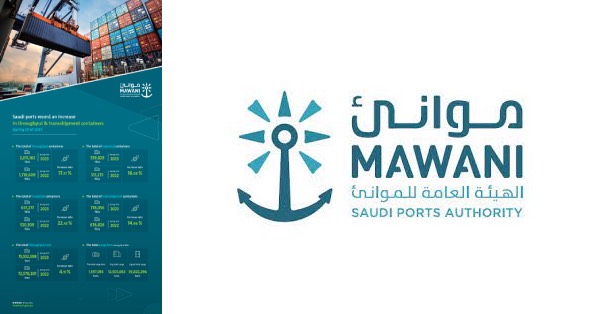The Saudi Ports Authority has reported an increase of 17.57% in container processing at its trade hubs during Q1 2023, scoring a throughput of 2,011,162 TEUs compared to 1,710,608 TEUs last year.
Quarterly container statistics further show a 16.08% spike in exported TEUs, attaining a total of 559,829 against the backdrop of last year’s Q1 volume of 513,273. Imported containers, however, performed better with a year-on-year rise of 22.43% from 520,509 TEUs to 637,277 TEUs. Meanwhile, transshipments received a 14.96% boost to volumes last quarter, growing from 676,826 TEUs to 778,056 TEUs.
Q1 numbers in the cargo category also trended upwards, soaring to 4.11% at 75,552,598 tons in contrast to 72,570,201 tons in the year before. The first three months saw a total of 1,597,014 tons of general cargo, 12,503,063 tons of dry bulk cargo, and 39,822,296 tons of liquid bulk cargo going through Mawani’s ports.
Up 14.97% from Q1 2022’s tally of 5,031,957 tons, food throughput across the Saudi ports network hit a volume of 5,785,004 tons. On the other hand, livestock imports jumped an enormous 300.48% from 336,581 to 1,347,949 cattle heads this year.
Similarly, automobile shipments shot up by 35.52% to 258,051 vehicles from 190,422 units a year earlier. An almost identical growth was registered in passenger volumes during this year’s first quarter with 304,610 pax disembarking into the Kingdom, an uptick of 34.29% from 226,838 pax during the same period last year. Inbound vessels, too, recorded an 11.48% surge relative to last year’s numbers with 2,855 ships entering Saudi waters versus 2,561 in the preceding year.
Innovating customer-centric solutions is core to the national maritime regulator’s mission under the guidance of the National Transport and Transport Strategy (NTLS) to build a world-class logistics hub that fosters global trade and reimagines a greener future for the shipping industry.









































